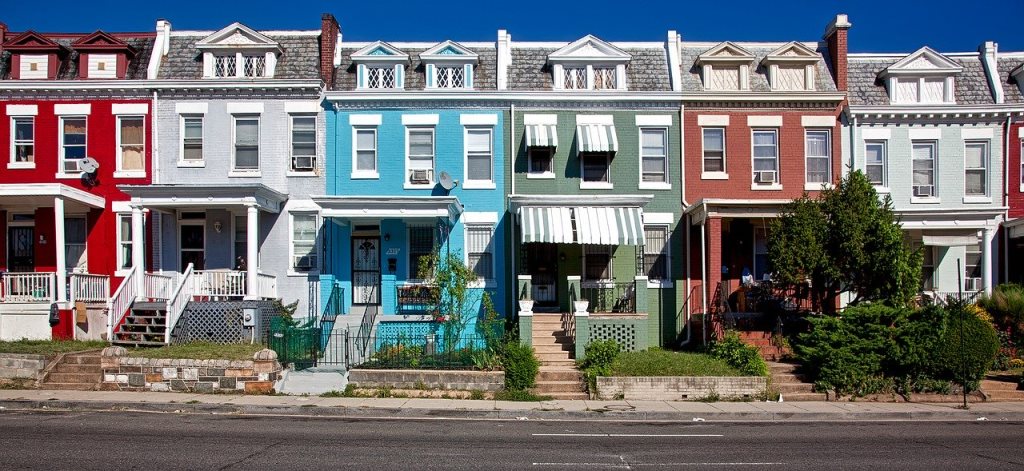On June 25, 2020 bipartisan legislation was introduced that would create a new federal tax credit to fuel development and rehabilitation of single-family homes and attract $100 billion in redevelopment activity to help revitalize under-served rural and urban communities across the country.
The Neighborhood Homes Investment Act (NHIA), introduced by Senators Ben Cardin (D-MD) and Rob Portman (R-OH.), and co-sponsored by Senators Chris Coons (D-DE), Sherrod Brown (D-OH), Todd Young (R-IN) and Tim Scott (R-SC), would encourage private investment in an estimated 500,000 homes that currently cannot be rehabilitated and reused because the costs to do so exceed the value of the home.
The tax credit supports redevelopment of homes in rural communities struggling with the costs of new construction, as well as rehabilitation of homes in blighted urban communities, where vacant homes depress property values and thwart broader revitalization efforts.
“Rehabilitating existing homes and building new ones can prevent or even reverse a trajectory of decline in a community,” said Julia Gordon, president of the National Community Stabilization Trust. “This carefully targeted program encourages private investors to revitalize neighborhoods on the edge, providing new opportunities for families to access affordable homeownership.”
The NHIA (S.4073) is designed to address a difficult market reality in many communities: the cost for developers to acquire and rehab blighted properties or build new homes exceeds what they could earn when they sell the homes.
The NHIA tax credit would help them fill that gap, up to 35 percent of the eligible development cost, and thereby reduce their risk of loss. It would encourage investment, create affordable homeownership opportunities, and support widespread revitalization of urban, suburban, and rural communities.
“Everyone deserves a safe and affordable place to call home. Our bipartisan tax credit builds on the success of the Low-Income Housing Tax Credit (LIHTC) and New Markets Tax Credit (NMTC) to attract investment in communities that need it most,” said Senator Cardin. “By creating this incentive in the tax code, we can drive investment and revitalize neighborhoods in Baltimore and across Maryland and keep them affordable for low- to moderate-income families.”
A companion bill (HR 3316) was introduced in the House last June by Representatives Brian Higgins (D-NY) and Mike Kelly (R-PA).
“Even prior to the pandemic, when America was experiencing one of the strongest economies on record, highlighted by consistent job creation and wage growth, there were certain geographic areas and vulnerable populations that suffered due to a lack of opportunity and investment. These areas were often marked by stagnant housing markets, foreclosures, and blighted or vacant homes,” Senator Portman said.
“The Neighborhood Homes Investment credit established in this bipartisan bill is directly targeted at bringing new investment to these neighborhoods, providing a new tool in our economic toolkit that pairs well with the New Markets Tax Credit, Opportunity Zones, and the Low-Income Housing Tax Credit. This new incentive will help thousands of vulnerable Ohioans in struggling neighborhoods by revitalizing communities and generating new opportunities for their residents,” he added.
NHIA tax credits would be awarded to project sponsors—which could include developers, lenders, or local governments—through statewide competitions administered by state housing finance agencies. Sponsors could use the credits to raise investment capital for their projects, and the investors could claim the credits against their federal income tax when the homes are sold and occupied by moderate- and middle-income homebuyers.
The Neighborhood Homes Coalition estimates that the NHIA would support a substantial economic impact over the next 10 years. In addition to the 500,000 homes that would be rehabbed and $100 billion in development activity, estimated impacts of this legislation include:
- 785,714 jobs in construction and construction-related industries;
- $42.9 billion in wages and salaries; and
- $29.3 billion in federal, state, and local tax revenues and fees.
The Neighborhood Homes Coalition is a national advocacy group comprising 22 organizations, including housing and community development nonprofits, financial institutions, and related trade associations. All support enactment of the NHIA.
Photo of row houses in Washington, DC via Pixabay.

